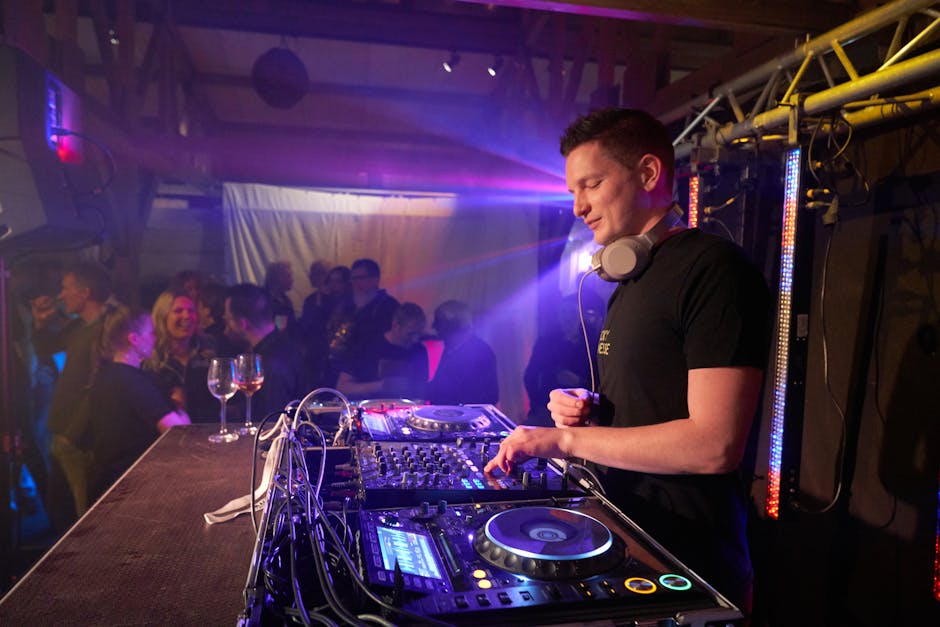The digital revolution has irrevocably altered the very fabric of music and entertainment, and this transformation shows no signs of abating. From the rise of streaming platforms to the emergence of immersive virtual reality experiences, technology is consistently reshaping how we create, consume, and interact with artistic expression. Will this relentless evolution continue to sculpt the industry, potentially leading to unforeseen consequences and exciting new frontiers?
A crucial aspect of this technological metamorphosis lies in the democratization of creation. Platforms like SoundCloud and YouTube have empowered independent artists, providing avenues for exposure and distribution previously inaccessible to many. This democratization, while beneficial in many ways, has also created a more competitive environment, prompting artists to adapt and innovate in order to stand out from the crowd. The ease of access to recording and editing tools has similarly empowered amateurs, blurring the lines between professional and hobbyist productions.
Streaming services, arguably the most impactful technological advancement, have fundamentally reshaped the music industry’s economic model. Subscription-based platforms have allowed for a more sustainable and diversified revenue stream, with artists earning royalties based on streams. While streaming has undoubtedly created opportunities, it has also raised complex questions regarding compensation. The challenge remains to ensure fair compensation for artists while managing the potential for exploitation inherent in the algorithm-driven nature of streaming platforms.
Beyond the realm of established music streaming services, emerging technologies promise even further shifts. Artificial intelligence (AI) is rapidly evolving, impacting various aspects of the music industry. AI-powered tools are already aiding in music composition, mixing, and mastering, potentially creating entirely new sonic landscapes. These tools can also personalize and enhance the listening experience through adaptive algorithms, suggesting music based on individual tastes. The potential benefits are undeniable, but concerns about the impact on human creativity and the potential for algorithmic bias are valid.
Another avenue of significant transformation is the metaverse. Immersive virtual reality (VR) and augmented reality (AR) experiences are rapidly gaining traction, creating new spaces for interactive music performances, virtual concerts, and the promotion of music videos. Artists are beginning to explore these mediums to engage with audiences in innovative ways, potentially creating entirely new revenue streams. The development and adoption of these technologies will be crucial in determining the extent to which music and entertainment experiences become entirely integrated within virtual realms.
The evolution of audio formats themselves is a constant. High-resolution audio and spatial audio technologies are transforming how music is experienced, delivering unparalleled sonic clarity and immersion. This evolution isn’t limited to the listening experience alone; recording studios are continually adapting to these advances, offering more sophisticated techniques for recording and mixing high-resolution audio.
Furthermore, the convergence of technology and physical spaces is reimagining live performances. Interactive stages incorporating projections, lighting, and sound design are creating more engaging experiences, blurring the lines between the physical and digital worlds. This convergence also presents opportunities for fan engagement, allowing fans to connect with artists in more meaningful and interactive ways.
Yet, amidst this technological advancement, potential challenges arise. The digital divide remains a crucial concern. Unequal access to technology and reliable internet connectivity could exacerbate existing inequalities in the music and entertainment industry. Additionally, the concern of content piracy and copyright infringement remains persistent, necessitating ongoing adaptation and innovation in anti-piracy strategies.
Furthermore, the ethical implications of AI’s role in music creation demand careful consideration. Protecting human artistry and fostering a creative environment where human ingenuity remains vital are essential aspects. Addressing the potential exploitation of artists through algorithmic curation and ensuring appropriate compensation for creators using AI-generated tools are critical.
Consequently, the future of music and entertainment will undoubtedly be shaped by ongoing technological developments. The democratization of creation, the evolving streaming model, the potential of the metaverse, and the transformative power of AI are all poised to reshape the industry in profound ways. The key to navigating these changes will lie in fostering ethical innovation, ensuring equitable access, and acknowledging the intrinsic human element within the artistic process. While technology continues to advance, the human desire for connection, expression, and artistic experience will remain constant, providing a dynamic backdrop against which these technological shifts will play out. It is imperative to prioritize a harmonious balance between technological advancement and the fundamental values that underpin the music and entertainment industry.
